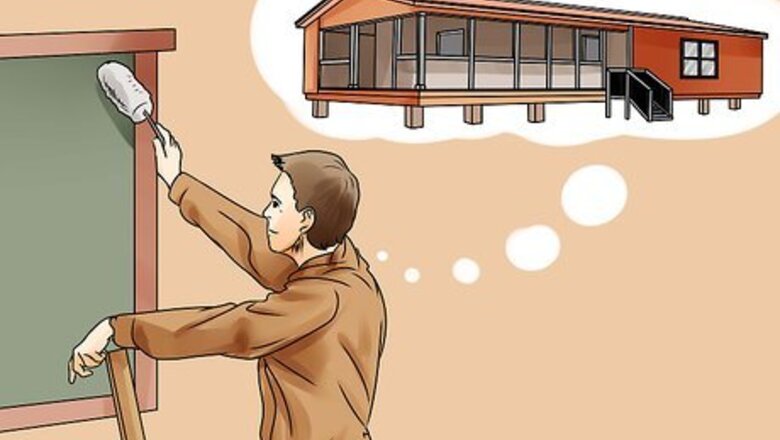
views
Getting Started
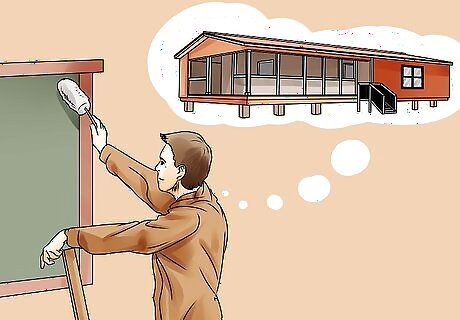
Clean your mobile home thoroughly. Before you get your mobile valued or attempt to list it or show it to anyone, spend a good amount of time cleaning it thoroughly, from top to bottom. Remove unwanted clutter by finding an off-site storage location, such as a storage locker, or with other family if you need to. A clean home will sell much faster than one that looks like it needs care. Put yourself in the perspective of a potential buyer. It's important to vacuum up any pet hair and deodorize the carpet, making the mobile home the most welcoming and clean version of itself. Your windows, your bathrooms and your kitchen should be spotless if you hope to sell it for a good price.
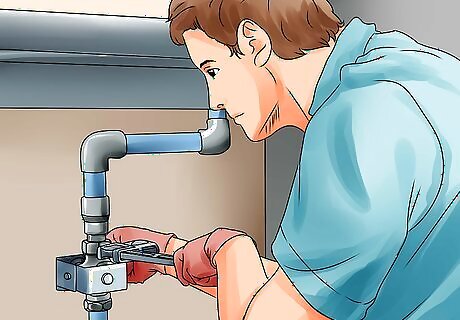
Make any necessary repairs before listing the property. Pay particular attention to leveling issues, plumbing problems, and any other fixable features that will make someone think twice about buying your mobile home. Even though it's unfortunate to have to spend money fixing up something you're not going to live in anymore, you'll be raising the potential asking price of the mobile home by investing in it now. Taking sneaky hide-the-leaky-fixture pictures may seem like a good idea to get around making repairs, but anyone that hires an inspector before making a purchase will find them, and ask you to fix them anyway. Sell your mobile home the right way and take care of issues that need to be addressed.
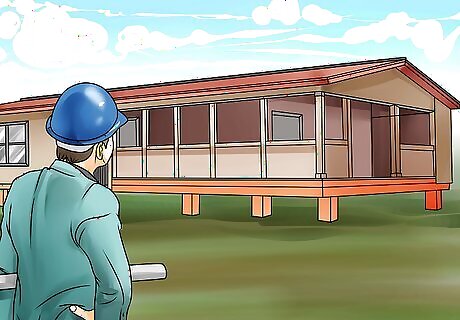
Determine the value of the mobile home. Before you list the mobile home, you need to find out how much it's worth and how much you still owe on it, if any. Determine your asking price by consulting with your lending institution to find out what you still owe on your loan for the home and/or the property. To get an overall idea of your potential property value, ask a real estate agent for a price option. For a more accurate estimate, you will need to hire an appraiser. Property inspection is a likely step a potential buyer would take, so furnishing your own results is a good way to stay ahead of the game. You may even be able to convince buyers that they don't need to pay for their own inspection, which you can leverage in negotiations. Home valuation reports are also available quickly and cheaply online. You might consider checking out mobilehome.net.
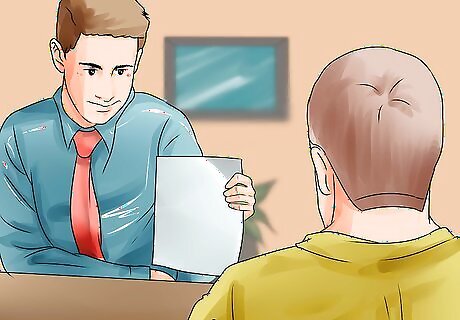
Consult with your lot manager to see if there are any neighborhood or sign restrictions before you post any for sale signage. If it is appropriate and OK with the place where your mobile home resides, place your sale sign in the yard or a front window. If your mobile home is located in a mobile home or RV community, you need to let the management know as soon as possible that you're planning on selling the vehicle, and determine whether or not a potential buyer wishes to live in the same mobile home park. In most parks, the buyer will need to submit a written application and be accepted if they wish to keep the mobile home in the park.
Listing the Property
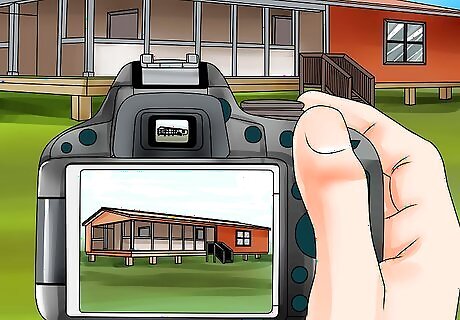
Take listing photographs. Your first impression on a potential buyer is always the most important, so take a variety of high-quality pictures that will make your house look attractive and desirable. Take the pictures of the house immediately after cleaning it, and ideally take pictures when you've cleaned out most or all of your belongings.
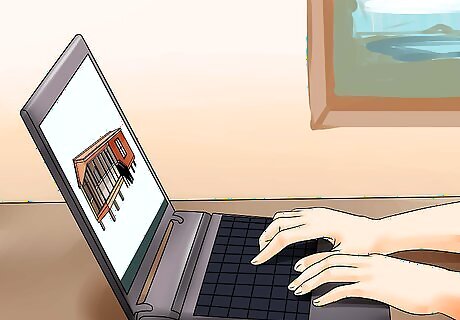
Advertise your mobile home online and in the trades. The best way to attract potential buyers is to list your mobile home on a database of homes, like Mobile Homes By Owner, found here as well as any other local trade papers and classifieds that will print short ads. The more places you list your mobile home, the more likely it will sell quickly. To list your mobile home online, you'll sometimes have to select between particular plans. Usually you'll either choose an economy plan that allows for one photo, or choose the premium plan that allows more photos at a higher price. With either choice, your ad can stay on the site for the set price until it sells. It's also a good idea to explore free options like Craigslist, which allow you to quickly write up the ad and make it as long and detailed as you want. Since trade papers usually charge per word, the ads tend to be clipped and super brief, making them sometimes frustrating to read.
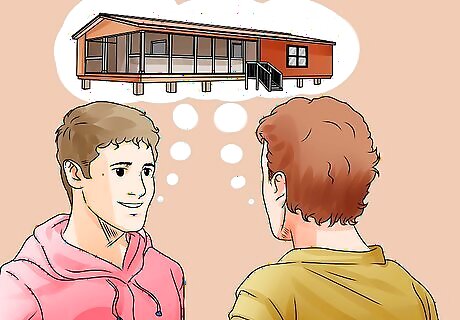
Be available for inspections and showings. Get ready: if you've done your job right, you're going to have a lot of people getting in touch and wanting to check out your mobile home, walk through, and call with specific questions. Try to set aside specific hours to schedule showings, or even consider holding an "open house" so everyone can show up and check out the property at the same time. Be both firm and flexible and consider negotiating the price. Don't let yourself get pushed around, but don't turn away serious offers either, even if they're somewhat south of what you initially hoped to get. Ending the sale is better than dragging it out.
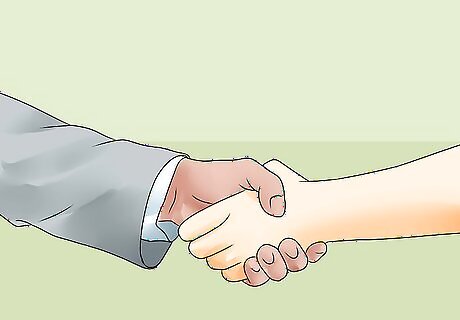
Close the deal. When you find someone willing to make an offer that you think is acceptable, fill out the necessary paperwork to make the deal complete. Select an acceptable move-in date and turn the keys over to the new owner of the mobile home.
Completing the Sale
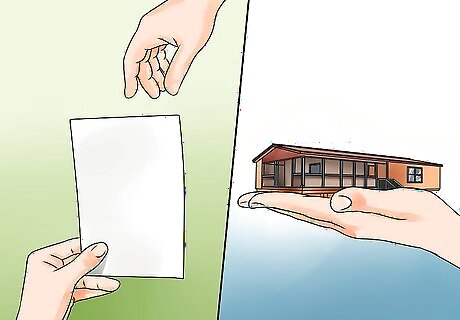
Transfer the title to the new owner. All ownership documentation needs to be transferred to the new owner. Depending on the model of mobile home you're selling, you probably have a title, similar to a vehicle title, that you need to transfer to the new owner. You can do this by obtaining the transfer form from the Bureau of Motor Vehicles (BMV) and signing it over to the buyer.
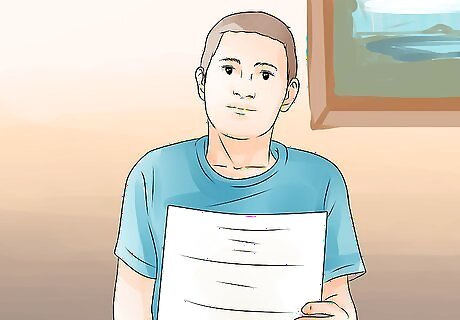
Provide a certificate of occupancy, if necessary. In certain states, a certificate of occupancy or a proof of residence must be present at the premises, which you can transfer over to the new owner. The purpose of the document is to act as a record of the residents at a particular location, for the purposes of insurance and zoning.
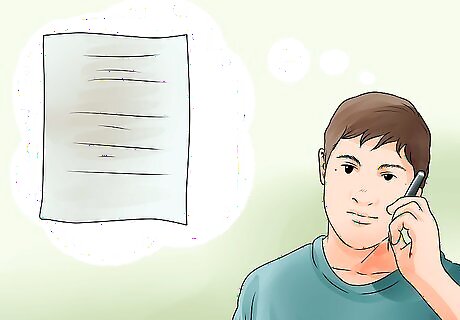
Furnish a bill of sale. Any time a major sale is completed, you need to furnish a Bill of Sale to the buyer to make it legal and make the transaction binding. This is an important step to guard yourself against the possibility of litigation or dispute in the event that the buyer changes their mind regarding the purchase. Contact the commerce secretary in your state to learn more about the proper forms and procedures for completing a bill of sale in your state. Not all states have a Department of Motor Vehicles (DMV), and not all DMVs would handle bills or transitions of ownership. Look into your state's specific rules and regulations for these types of sales.
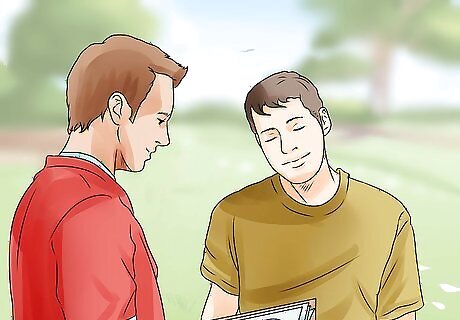
Consider hiring a real estate agent if you can't close the deal. Selling a home of any kind by yourself can take up lots of time. If you're busy with work, kids, or other responsibilities, it can be too much. Don't invest all of your time in the sale of the mobile home, if you can turn some of the responsibilities over to a professional real estate agent who can do the job for you and get it done quickly and efficiently.




















Comments
0 comment